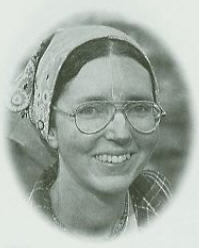
Hare Krsna Devi Dasi
DURING A conversation in Los Angeles in 1968, Srila Prabhupada made a sobering prediction about what would happen if humanity continued its practice of cow slaughter:
Devotee: You said that as the Age of Kali-yuga progresses there'll be no more butter.
Srila Prabhupada: Yes, it has already begun. You are killing cows, the source of butter. Now the time will come when there will be no more cows. Mankind is misusing them. So where will you get butter? You cannot manufacture av cow or butter in a factory.
Devotee: We can take care of cows, can't we?
Srila Prabhupada: You should. Otherwise you are ungrateful. You are drinking milk, you are taking so much butter, milk products, and as gratitude you are killing cows? You should be ashamed. Have you no human feelings? You suck the breast of your mother, then you kill her? Is that humanity? So it will be, in due course of time, that the milk supply will be stopped.
In 1968, Srila Prabhupada's prediction must have seemed unlikely. Of course there would be cows. Even if cows were continually slaughtered, commercial dairies would constantly produce more. By the marvelous workings of the market economy, there would always be more milk. Supply and demand: If consumers wanted milk, obviously dairy farmers would produce it.
Probably most people still believe that, but in recent decades, unbeknown to the consumer, the situation has been shifting. Agricultural experts note that a dangerous fault line has begun to develop, as many dairy farms are forced to close because they're not making money.
In a recent New York Times article ("Losing Money on Every Gallon," October 12, 1997) reporter William Glaberson described the dairy farmer's anxiety: "According to government and private estimates, an average dairy farmer in the New York region is now paid less for a gallon of milk than it costs to produce that amount. That money-losing formula means that in places where dairy farming is not just the biggest industry but a way of life, people are beginning to speak of a new farm crisis."
In 1987 New York had 14,500 dairy farms. Of the 9,000 that remain, as many as 1,000 could soon be forced out of business, says Donald Davidson, New York's commissioner of agriculture and markets. Shirley Ferris, Connecticut's commissioner of agriculture, says, "Dairy farmers are getting the same amount for their milk as they did 10 years ago, but the cost of everything they have to buy has quadrupled. I don't need to say any more."
What went wrong? farmers wonder. Depression-era farm subsidies are being phased out, and the "free market," it turns out, is not so free after all. It encourages monopoly and oligopoly. That means big guys call the shots. Government officials and big milk buyers work out prices the farmer gets for milk. Farmer and consumer, who never see each other anyway, have little say in the matter.
As dairy farms continue to fold, it's tempting to say, "Serves 'em right; they're killing cows." And in terms of karma, we know the next life holds more trouble for commercial dairy farmers. But in practical terms it's simply not possible to do commercial dairying without slaughtering cows. The high cost of maintaining unproductive cows would drive a farmer out of business. Unfortunately, land taxes are prejudiced against the subsistence farmer, who would be more likely to protect his cows.
The real solution is to create another kind of society, based not on maximizing profit but on maximizing spiritual advancement. That is the varnasrama society described in Vedic literature, a society in which all the occupational groups cooperate to please the Supreme Personality of Godhead. In that society, the cow is not considered a money-making machine but a sacred animal, beloved by Krsna, an entity who softens human passions, elevating humanity to the mode of goodness so it can better hear the message of Krsna.
In Hyderabad, Srila Prabhupada once told a disciple, "We should establish this varnasrama-dharma in America. The varnasrama is centered on the cow."
Varnasrama is based not on the concept bigger is better but on the concept whatever pleases Krsna is better. In varnasrama, the cow and bull are treasured family members, and the government protects farmers so they can in turn protect the cows and create a peaceful atmosphere for chanting Hare Krsna. The chanting of Hare Krsna removes the bad effects of the present sinful age and helps create a spiritual society.
Hare Krsna Devi Dasi, an ISKCON devotee since 1978, is co-editor of the newsletter Hare Krsna Rural Life.
